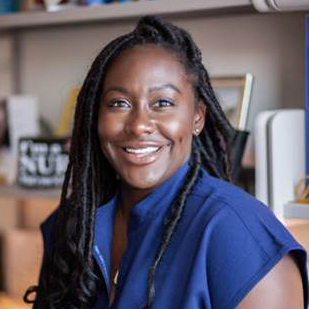Find Accelerated Degree Programs to Pursuing Nursing as a Second Career



If you’re considering nursing as a second career, making the change doesn’t have to be complicated.
If you already have a bachelor’s degree in any field, you can leverage that education in to an accelerated Bachelor of Science in Nursing (ABSN) program and complete your nursing education in less than two years. Even without a prior bachelor’s degree, you have the option to become an RN with an Associate’s Degree in Nursing (ADN) or you can enter the workforce even quicker by becoming a Licensed Practical Nurse (LPN) or Licensed Vocational Nurse (LVN).
In This Article
Steps to a Second Career as a Nurse | What Is an Accelerated Nursing Degree? | Online Programs | Is Nursing Right for You? | Frequently Asked Questions
How to Pursue Nursing as a Second Career
Assess the education you can apply toward a nursing degree.

Becoming a nurse with a bachelor’s in another field, as long as it’s from an accredited institution, is achievable through an ABSN program. However, program requirements vary by school, so it’s wise to meet with admissions counselors at more than one program to determine what previous coursework you can apply toward a nursing degree.
Keep in mind that accelerated programs are competitive and not easy to get into. Considerations such as a minimum cumulative GPA or minimum grade requirements in prerequisite classes may make you a better candidate for an ABSN programs over others.
If an ABSN program isn’t the right fit for you, the quickest option to pivot to nursing as a second career is to become an LPN/LVN through an accredited practical nursing certificate, which takes about a year to complete. Prospective nurses can also earn an Associate’s Degree in Nursing, which will take about 2-3 years to finish.
Complete any prerequisite courses.

An admissions counselor can work with you to determine whether you’ll need any prerequisites and help you establish a timeline to complete your degree.
Prerequisites typically include courses in anatomy, physiology, statistics, and microbiology to give you a sound foundation for your nursing studies. Based on program requirements, you may be able to complete your prerequisites online or at another accredited institution, such as a community college. This option could be convenient and save you money.
Complete your nursing education, including clinicals.

The curriculum will vary by school and by program, but you should expect to learn hands-on skills and to participate in simulation labs. You’ll also need to gain experience by completing clinical practice at local healthcare facilities.
The number of clinical hours you must complete varies by program and licensing requirements in the state where you study. ABSN requirements are generally 700 to 800 hours of practice and training, similar to the hours required for a traditional BSN.
Additionally, course work in the classroom is rigorous and typically includes classes in:
• Health assessment
• Nursing care of adults and older adults
• Care of women and childbearing families
• Psychiatric and mental health nursing
• Care of children and adolescents
• Concepts in pharmacology
• Management and leadership
Take and pass the nurse licensure exam.

After you earn your nursing degree, you’ll be eligible to take the National Council Licensure Examination (NCLEX), which is administered by the National Council of State Boards of Nursing (NCSBN).
There are two of the NCLEX exam: The NCLEX-RN is a computerized exam required by every state board of nursing to qualify for an RN license, whereas the NCLEX-PN is required to practice as an LPN.
A variety of free materials are available online to study for this exam, which includes multiple-choice, fill-in-the-blank, and other questions.
Get licensed to practice in your state.

After passing the NCLEX, you must apply to your state board of nursing for a license to practice. In addition to passing the national nursing exam, some licensing boards require applicants to provide professional references and undergo a background check and fingerprinting.
Earn a nursing certification.

As you gain experience in nursing, you may decide to specialize. Professional certifications are optional credentials you earn to demonstrate advanced knowledge and skills in specific areas of nursing.
Certification can also help set you apart from other candidates when applying for jobs, demonstrate your commitment to lifelong learning, and open doors to advancement.
There are several professional nursing organizations that award certifications. All have their own eligibility requirements, which often include work experience. Examples of certifying bodies and their credentials include:
American Nurses Credentialing Center (ANCC)
• Pain Management Nurse—Board Certified (PMGT-BC)
• Pediatric Nurse—Board Certified (PED-BC)
• Gerontological Nurse—Board Certified (GERO-BC)
Orthopaedic Nurses Certification Board (ONCB)
• Orthopaedic Nurse Certification (ONC)
Radiologic Nursing Certification Board (RNCB)
•Certified Radiology Nurse (CRN)
Options to pursue Nursing as a Second Career
Accelerated Bachelor of Science in Nursing
An ABSN degree is a fast-track program designed for students who have a bachelor’s degree in a field other than nursing. Students complete the same nursing curriculum and clinical hours as those in traditional four-year BSN programs, but they do it in less time.
ABSN programs build on your previous academic coursework, so you don’t have to duplicate general education courses you took to earn your first bachelor’s degree. Without these requirements, the ABSN curriculum focuses exclusively on nursing.
Depending on the amount of time that has passed since you earned your first degree, you may have to take or retake prerequisite courses, usually in the sciences, before enrolling in an ABSN.
An ABSN degree is a fast-track program designed for students who have a bachelor’s degree in a field other than nursing.
Associate’s Degree in Nursing
Pursuing an ADN degree is the other option for prospective registered nurses without a prior bachelor’s degree in another field. This option is great for those without the time or resources to pursue a BSN degree.
While the salary potential is greater for those who hold a BSN, the same opportunities to pursue certain specialties and work as an RN are presented with an ADN degree. There are also ADN-to-BSN bridge programs available for those who decide to enhance the
LPN/LVN
Earning your LPN/LVN certification is a suitable option for those who want to become a nurse quickly or who want to become a nurse while working full-time. LPNs earn a non-degree award through a formal training program that will take about a year to complete.
Keep in mind that the earning potential is limited for an LPN/LVNs compared to an RN. But there are bridge programs available if you decide later you’re ready to take the next step and become an RN.
Online Nursing Programs
You may benefit from enrolling in an online nursing program if you have family or work responsibilities that you’ll need to juggle while you earn your degree. An online program allows you to complete much of your coursework online, often at your convenience.
Even with an online program, you’ll need to complete skills and lab requirements in person at your school or a local healthcare facility such as a hospital or clinic.
Some online nursing programs also allow you to progress through your degree at your own pace, which may be slower or faster than the timeline of a traditional college semester.
It’s important to note that you’ll still need to complete skills and lab requirements in person at your school or a local healthcare facility such as a hospital or clinic.
Is Nursing Right for You?
While you might be attracted to nursing for myriad personal and professional reasons, make sure it’s a good fit before you commit to a career change.
These skills and qualities will serve you well as a nurse:
Empathy toward others who are vulnerable or in need
Caring for others is at the core of nursing, and it’s the reason many nurses find their jobs rewarding.
The ability to work well in high-stress, high-pressure environments
Quality care can make a significant difference in a patient’s well-being, so nurses must be able to consistently perform at the highest level despite challenges such as emergency situations, staffing shortages, and long hours.
Excellent communication skills
Your ability to communicate is crucial to working as part of an effective healthcare team. Your patients will benefit from your care and their loved ones will benefit from your ability to communicate instructions, treatment explanations, and patient updates.
Passion for details
Whether you’re administering medications, delivering treatments, or measuring vital signs, you must be vigilant about following procedures and identifying life-threatening situations when they arise.
A commitment to lifelong learning
Medical knowledge and technology are constantly advancing, so nurses must be committed to professional development to remain current on skills and procedures.
FAQ for Nursing as a Second Career
“Nursing can be a good choice for someone contemplating a career change because it is a profession that touches on pieces of a lot of different aspects of human life,” says Gibson. “It’s analytical, theoretical, communal, and nurturing–a great mix of hard and soft skills.”
Nursing offers diverse opportunities in patient care, administration, and leadership. Jobs for registered nurses are expected to grow by 5.6% through 2032, according to the U.S. Bureau of Labor Statistics (BLS), and the annual median salary for RNs is $86,070.
“Nursing is an opportunity to make an immediate impact, serve the community, and make financial strides. Not to mention the profession of nursing is so multi-faceted and layered and intersects with other industries (tech, corporate, legal, civil, political and education),” says Gibson.
Like any career transition, switching to a nursing career can be exciting and challenging. Your experience in doing so will depend largely on your expectations, your past education, and your experience.
“My transition into nursing from public health wasn’t difficult. … I spent my time before nursing school teaching sex education to teens and women in underserved communities,” says Gibson. “I was able to transfer my soft skills as a community health advocate fairly easily.”
One of the best places to start your transition into a nursing career is by talking with other nurses. Learn what’s involved in working as a nurse on a daily basis and whether it’s a natural fit for you. Contact professional nursing organizations, online nursing communities, and even your local hospital for opportunities to learn about the career.
Your next steps should include speaking to admissions counselors at schools that offer ABSN programs that interest you. Determine the time and cost of earning your ABSN to decide whether it’s a commitment you’re ready to make.
An ABSN condenses the traditional nursing curriculum so that it can be completed in about 14-16 months of full-time study. However, it could take longer.
Before enrolling in an ABSN, many students must complete some prerequisites to meet the admission requirements for an accelerated program. After graduation, you must pass the NCLEX and earn state licensure before you can work as a professional nurse.
Not at all. There are several nurses that become a nurse much later, even in their 30s, 40s, or 50s.
As long as you can physically handle the day-to-day duties of being a nurse, there’s no reason why you couldn’t pursue nursing as a career later in life. There are several nurses that become a nurse much later, even in their 30s, 40s, or 50s.
The demand for nurses is currently high, due to a shortage in the field that’s expected to continue through 2030, so opportunities should be plentiful.
To take the NCLEX-RN exam, you must possess a BSN or ADN degree. However, you don’t need a degree to be an LPN or LVN and take the NCLEX-PN.

With professional insight from:
Tiffany E. Gibson, MSN, RN, NPD-BC, CPN
Nurse Educator, Professional Development, Diversity & Inclusion




